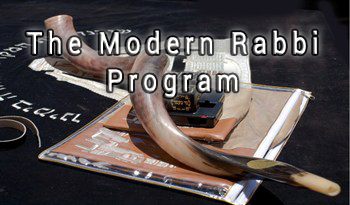
The Modern Rabbi Program
Founded by Rabbi Joseph H. Gelberman, The Rabbinical Seminary International offers a unique individualized program for the training of the Modern Rabbi. This program helps the student cultivate practical skills and knowledge that can enable him or her to serve as a teacher, counselor, worship facilitator, spiritual healer and teacher of faith. The program prepares men and women of the Jewish faith to serve the Jewish and larger communities as spiritual leaders within the context of the Jewish perspective.
The program includes instruction in the practical aspects of Rabbinical service as well as extensive education in the Bible, Jewish history, Philosophy, theology, and varieties of Jewish spiritual experience. Students work privately with experienced Rabbis and tutors providing as many opportunities as possible to practice their skills in actual situations.
The most important qualification for the Modern Rabbi is his or her own spiritual and ethical value system. Candidates for the Seminary should be committed to a life of personal spiritual development and service to God and humanity. Ongoing spiritual work is seen as an integral part of the program of study.
A Rabbi for the Ages
Historically, Jewish communities have offered persons who were called to spiritual service myriad opportunities to serve. The Modern Rabbi program of the Seminary is in keeping with a tradition that has been alive in the Jewish community for thousands of years.
The Modern Rabbi is distinguished from the traditional rabbi in two important ways. First, the main emphasis of the learning experience of the Modern rabbi is on personal and practical spiritual ministry, not Jewish law. The curriculum of the Seminary does not call for intricate technical studies of Jewish law that no longer guides the lives of the majority of Jews today.
Second, the traditional rabbi has the authority to act as a judge in matters of Jewish ritual and civil law. The Modern Rabbi is not a judge or an interpreter of law. Instead, he or she serves as a spiritual guide for people searching for a greater spiritual consciousness in Judaism.
Along with traditionally ordained rabbis, cantors, and educators, there is a need and place for the Modern Rabbi to offer his or her own contribution toward the spiritual renewal of the human community.
Completion Requirements (in brief)
Students must demonstrate:
The ability to conduct religious services that include Hebrew, including Shabbat & holiday services;
Familiarity with the Bible, including main themes of the Torah, the basic teachings of each of the prophets, and a knowledge of the writings;
Familiarity with Jewish perspectives on Biblical interpretation;
General knowledge of Jewish history;
Understanding of the customs and rituals of the holidays and their spiritual meaning for our times;
Regular attendance at synagogue services;
General knowledge of aspects of the Talmud;
Knowledge of the principles of pastoral care in hospital visitations, death and bereavement counseling, premarital counseling, and the issues pertaining to Interfaith marriage.
Knowledge of Jewish ethics and philosophy (with an emphasis on Martin Buber and Abraham Joshua Heschel), plus course work demonstrating the student’s abilities as a congregational leader & teacher.
In addition, the student must write a final thesis on his or her own goals and plans as a modern Rabbi, complete an intensive in New York City, and answer all questions of the final examination.
A diploma — semicha — is granted to students upon successful completion of all requirements.